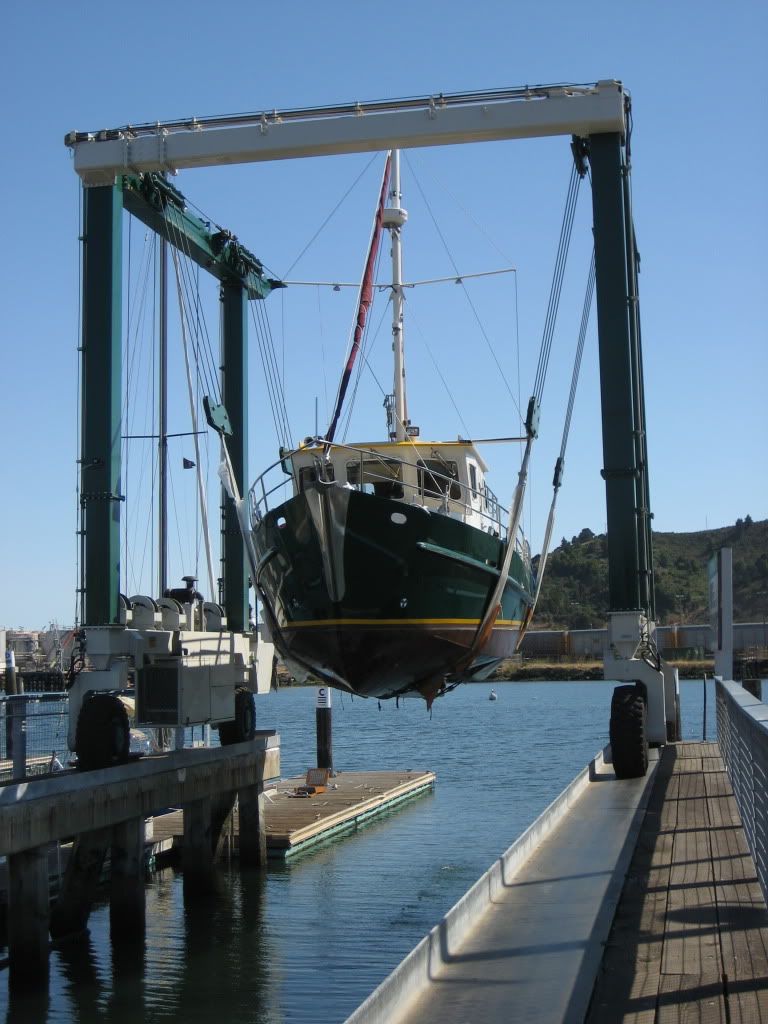MurrayM
Guru
How accurate have you found boat hoist scales to be?
We recently had a deal to buy a small 23' full displacement pocket cruiser fall apart because the scales read double what everybody, including the current owner, expected it to be. That put serious doubt into whether the trailer was up to the task, and extra serious questions as to what could cause such drastic weight gain.
The current owner had an old yachting magazine which contained an article about the boat that said it should have weighed 4,000 pounds, but the hoist scales showed almost 4,000 pounds per strap.
There wasn't too much extra "stuff" aboard when it was hoisted from its old trailer, the water tank was almost empty, as were the fuel tanks.
We contacted the surveyor again, and he said that hoist scales give ballpark figures because they don't read a vessels weight, but show an estimate based on the hydraulic pressure needed to lift it. He also said, "I imagine there may be some concrete in the inaccessible bilge area beneath the permanently screwed down sole..."
I can see the boat weighing quite a bit more than what the manufacturer claimed, especially if ballast was added at a later date to dampen roll...but twice as much?!!?
I'm going to call the owner tomorrow and see if he can take it to a truck weigh scale. If I remember correctly, he'll have to weigh the truck with the boat and trailer attached (to account for the weight on the hitch), weigh the boat and trailer while still attached to the truck, then subtract the truck and trailer to find the true weight of the boat.
Lots of navel gazing over this because we would need to have a new trailer built to drive it 1,000 miles from Vancouver to northern BC, and borrow a more powerful truck to tow with.
Advice / past experiences / wisdom?
Murray
We recently had a deal to buy a small 23' full displacement pocket cruiser fall apart because the scales read double what everybody, including the current owner, expected it to be. That put serious doubt into whether the trailer was up to the task, and extra serious questions as to what could cause such drastic weight gain.
The current owner had an old yachting magazine which contained an article about the boat that said it should have weighed 4,000 pounds, but the hoist scales showed almost 4,000 pounds per strap.
There wasn't too much extra "stuff" aboard when it was hoisted from its old trailer, the water tank was almost empty, as were the fuel tanks.
We contacted the surveyor again, and he said that hoist scales give ballpark figures because they don't read a vessels weight, but show an estimate based on the hydraulic pressure needed to lift it. He also said, "I imagine there may be some concrete in the inaccessible bilge area beneath the permanently screwed down sole..."
I can see the boat weighing quite a bit more than what the manufacturer claimed, especially if ballast was added at a later date to dampen roll...but twice as much?!!?
I'm going to call the owner tomorrow and see if he can take it to a truck weigh scale. If I remember correctly, he'll have to weigh the truck with the boat and trailer attached (to account for the weight on the hitch), weigh the boat and trailer while still attached to the truck, then subtract the truck and trailer to find the true weight of the boat.
Lots of navel gazing over this because we would need to have a new trailer built to drive it 1,000 miles from Vancouver to northern BC, and borrow a more powerful truck to tow with.
Advice / past experiences / wisdom?
Murray

